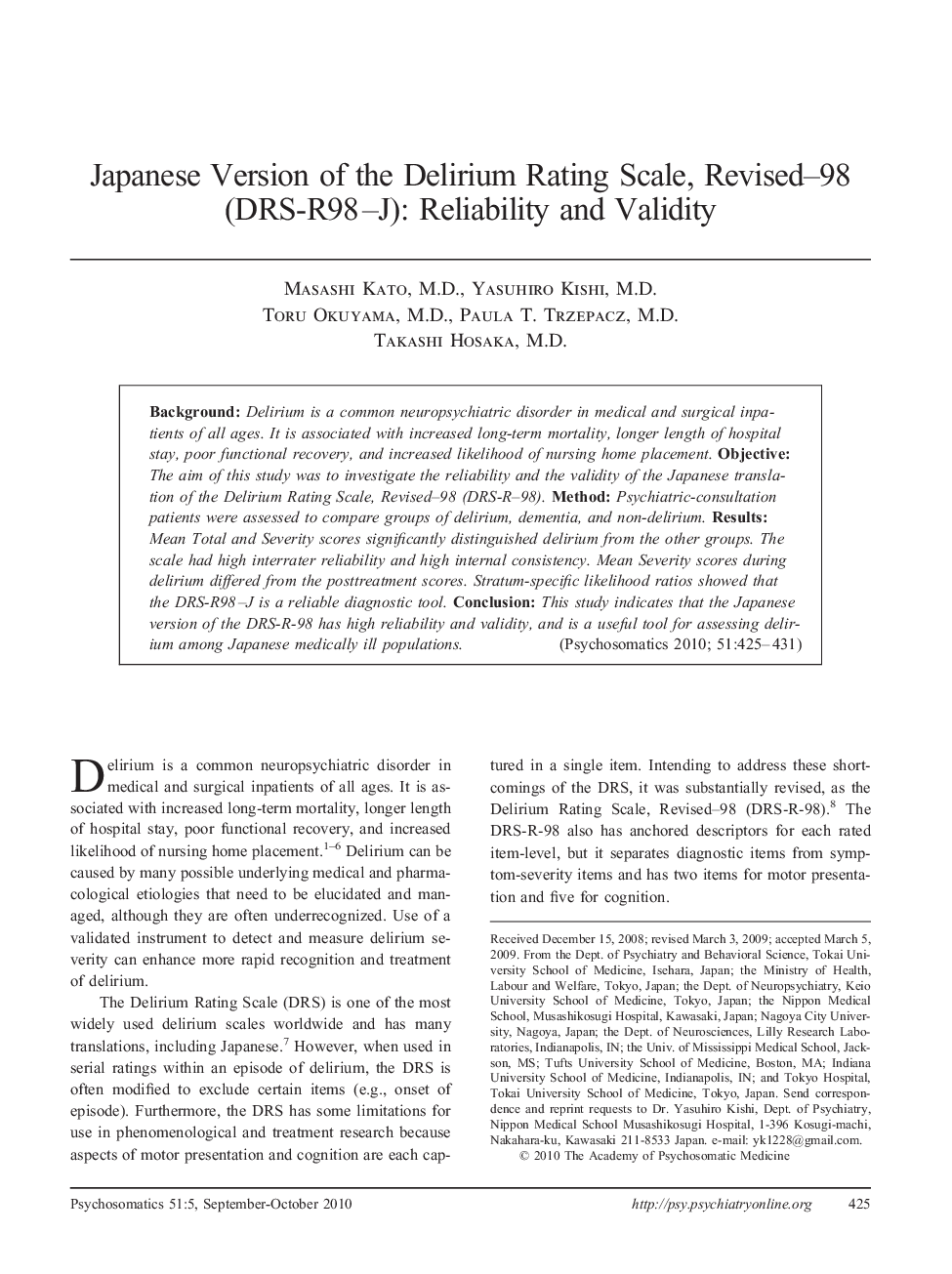| Article ID | Journal | Published Year | Pages | File Type |
|---|---|---|---|---|
| 339263 | Psychosomatics | 2010 | 7 Pages |
BackgroundDelirium is a common neuropsychiatric disorder in medical and surgical inpatients of all ages. It is associated with increased long-term mortality, longer length of hospital stay, poor functional recovery, and increased likelihood of nursing home placement.ObjectiveThe aim of this study was to investigate the reliability and the validity of the Japanese translation of the Delirium Rating Scale, Revised–98 (DRS-R–98).MethodPsychiatric-consultation patients were assessed to compare groups of delirium, dementia, and non-delirium.ResultsMean Total and Severity scores significantly distinguished delirium from the other groups. The scale had high interrater reliability and high internal consistency. Mean Severity scores during delirium differed from the posttreatment scores. Stratum-specific likelihood ratios showed that the DRS-R98–J is a reliable diagnostic tool.ConclusionThis study indicates that the Japanese version of the DRS-R-98 has high reliability and validity, and is a useful tool for assessing delirium among Japanese medically ill populations.
